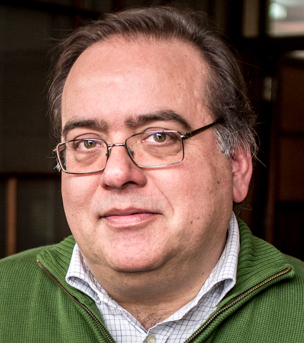

|
|
RODS17 Reproducible and Open Data ScienceDownloadable poster in PDF |
|
IMPORTANT DATES for this Course
|
Instructors: |

Rutger Vos studied biology at the University of Amsterdam, where he graduated in
2000. He then embarked on his PhD research under professor Arne Mooers at Simon
Fraser University in Vancouver, Canada, where he defended his thesis on
phyloinformatic problems in 2006. As a self-taught programmer he then became
involved in several open-source scientific software development projects while
continuing his research career through a postdoctoral fellowship at the
University of British Columbia (Vancouver, Canada) and a Marie Curie research
fellowship at the University of Reading (Reading, UK). In Spring of 2012 he
commenced his employment as the bioinformaticist of the Naturalis Biodiversity
Center in a role where he combines novel research with
bioinformatics contributions to various research programmes within the
organization. In his spare time he also contributes to various open source
software projects (TreeBASE, Bio::Phylo, NeXML) and is co-PI of the
PhyloTastic project. In addition Rutger has taught bioinformatics workshops in
the US, Japan, China, Kenya and three times before at GTPB courses
PHYLOINF09, ARANGS12, ARANGS13, ARANGS15
|

Pedro Fernandes graduated in Electronics and Telecommunications Engineering at IST (Universidade de Lisboa). He worked in Biomedical Engineering, Biophysics and Physiology and changed to Bioinformatics in 1990. He established the first user community in Portugal around the national service provided by the portuguese node of the EMBnet. In 1998 he created the Gulbenkian Training Programme in Bioinformatics,
GTPB that has provided a wide variety of user and developer skills to a total of more than 5000 course attendees throughout its eighteen years of existance. The provision of training in a coherent programme, with established training methods and a structured approach to meeting the evolving needs of the community, resulted in a standalone, reproducible and sustainable operation [Fernandes P L The GTPB training programme in Portugal Brief Bioinform (2010) 11 (6): 626-634. DOI: https://doi.org/10.1093/bib/bbq063]. He currently teaches Bioinformatics both in graduate and undergraduate programmes. He is the Training Coordinator of Elixir Portugal and leads the Train-the-Researcher sub-task of the ELIXIR/EXECELERATE, a H2020 program to accelerate the start of the ELIXIR infrastructure provision initiative for biomedical data and bioinformatics tools. He is one of the founders of GOBLET, the Global Organisation for Bioinformatics Education and Training, where he currently chairs the Learning, Education and Training Committee. Pedro is an ivited researcher at the University of Porto, Faculty of Medicine, and a consultant/instructor with H3ABioNet for the distance learning courses IBT and AGMT.
|
Course description |
In an age of increasingly complex and data-intensive, collaborative scientific practices, scandals of irreproducibility, and a growing societal ethos of transparency and accountability, a new paradigm has arisen: Open Science. In this three day course, we will introduce to you the three organizing principles and practices that undergird this paradigm:
|
Target AudienceResearchers and Students in all sectors of Biomedicine. |
Pre-course ReadingW S Noble. 2009. A Quick Guide to Organizing Computational Biology Projects. PLoS Comput Biol 5(7): e1000424 https://doi.org/10.1371/journal.pcbi.1000424E M Hart et al. 2016. Ten Simple Rules for Digital Data Storage. PLoS Comput Biol 12(10): e1005097 https://doi.org/10.1371/journal.pcbi.1005097 P E Bourne et al. 2017. Ten simple rules to consider regarding preprint submission 13(5): e1005473. https://doi.org/10.1371/journal.pcbi.1005473 |
|
Detailed Program |
|
Instituto Gulbenkian de Ciência, Apartado 14, 2781-901 Oeiras, Portugal Last updated: May 30th 2017 |